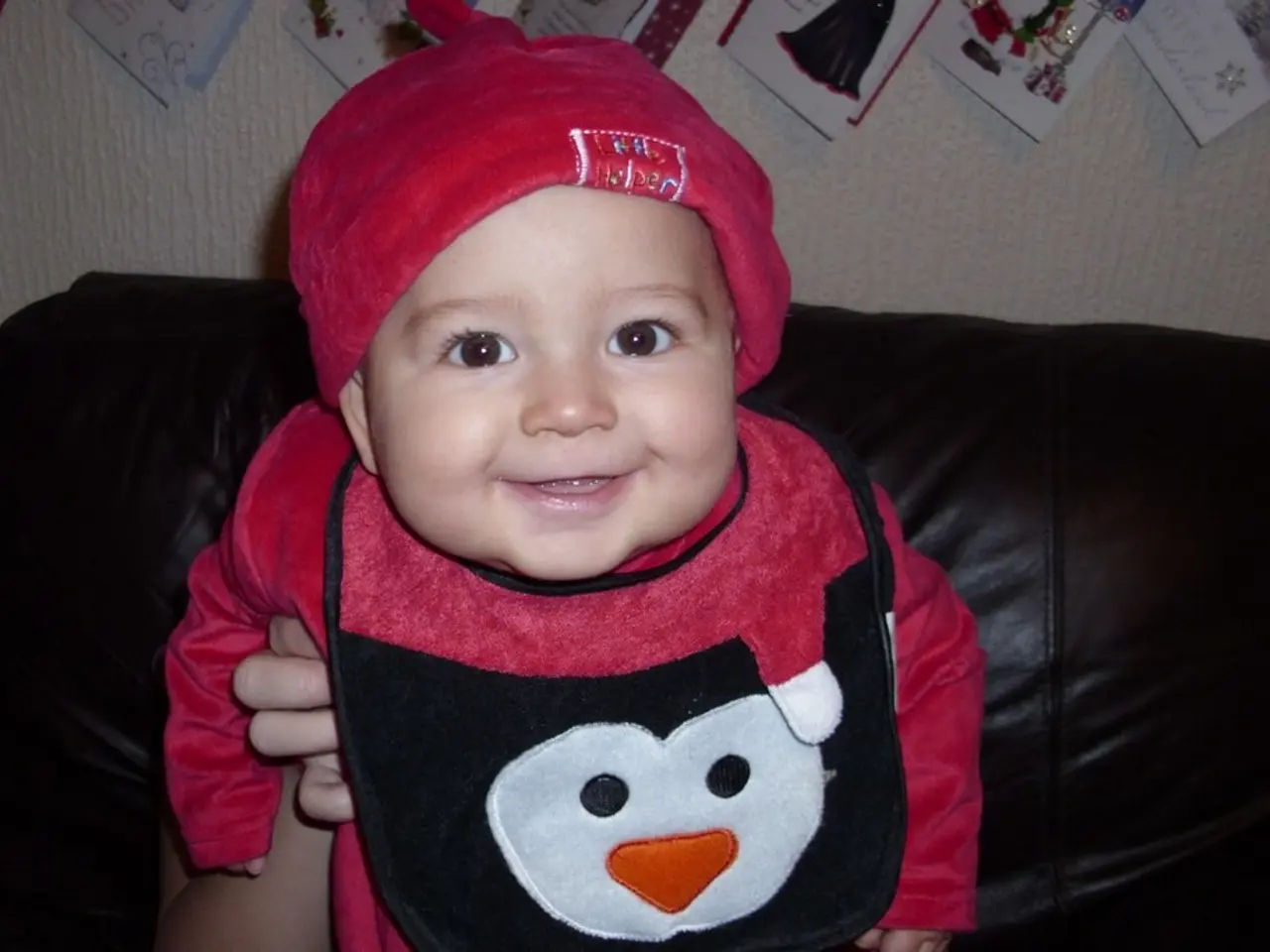Significant Symptoms of Age-Appropriate Growth for Young Children
Supporting Child Development: A Guide from Infancy to Pre-Kindergarten
Child development is a fascinating journey that spans various stages, from infancy to pre-kindergarten. In this article, we'll explore the typical developmental milestones across four main domains – physical, cognitive, social-emotional, and language – and provide tips on how parents can support their child's growth at home.
Infancy (0–12 months)
During infancy, babies transform from reflexive newborns to interactive individuals.
Physical: Head control by 6 weeks, rolling over (4–6 months), sitting with support (6 months), crawling and standing with assistance (7–12 months). Cognitive: Responding to sensory stimuli early on; exploring objects by touch and taste around 4–6 months; understanding object permanence by 7–12 months. Social-Emotional: Recognizing faces and sounds by ~7 weeks; beginning to engage socially. Language: Cooing and babbling typically begin around 6–8 weeks.
Parental support: Encourage tummy time to strengthen muscles, provide colorful and textured toys to stimulate senses, talk and sing to foster language, and respond warmly to social cues to support emotional bonding.
Toddler to Pre-Kindergarten (1–5 years)
Toddlers and pre-kindergarten children experience rapid growth in physical, cognitive, social-emotional, and language skills.
Physical: Improved gross motor skills such as running, jumping, and fine motor skills like drawing and self-feeding develop progressively. Cognitive: Developing problem-solving, memory, early numeracy, and literacy skills. Social-Emotional: Learning to recognize others' feelings, demonstrate empathy, engage in cooperative play, manage emotions, and gain self-confidence by preschool age. Language: Rapid vocabulary growth, forming sentences, following instructions, initiating conversation.
Parental support: Provide opportunities for independent tasks (dressing, cleaning up), encourage collaborative play and storytelling to build social skills and empathy, foster independence through guided self-help, and maintain a rich language environment to boost communication and cognitive skills.
Across all stages, regular monitoring of milestones during healthcare visits ensures timely identification of delays. Early engagement, responsive caregiving, and supportive learning environments are key strategies to promote well-rounded development from infancy through pre-kindergarten.
Supporting Development at Home
- Asking open-ended questions that promote thinking can support cognitive development at home for three-year-olds.
- Encouraging imaginative play with simple props can support development at home for three-year-olds.
- Creating opportunities for decision-making and problem-solving can support cognitive and social development at home for three-year-olds.
- Arranging playdates can help practice social skills at home for three-year-olds.
- Supporting your toddler at home includes creating safe spaces where exploration is encouraged, reading picture books daily and talking about what you see, providing simple art activities, playing music and dance together, and establishing consistent limits while allowing appropriate choices.
- Supporting your two-year-old at home includes providing opportunities for safe independence, reading, singing, and talking together frequently, offering choices within limits to reduce power struggles, creating consistent routines and clear, simple expectations, and acknowledging feelings while setting appropriate boundaries.
Early Learning Programs
BBMA's programmes for toddlers and threes offer a balance of structure and freedom, with language-rich classroom environments, self-help skill practice, early literacy activities, sensory and art experiences, and guidance strategies. These programmes encourage cooperation and communication, foster self-expression, and provide a nurturing environment for children to learn and grow.
- BBMA's infant program provides individualized care in a nurturing environment that stimulates all developmental domains, including personalized tummy time sessions, one-on-one interactions, sensory experiences, a language-rich environment, and consistent caregivers.
- BBMA's toddler program harnesses natural curiosity and energy by providing safe, engaging environments, movement activities, language-rich interactions, simple social games, and sensory experiences.
- BBMA's threes program encourages cooperation and communication through interactive learning centers, early literacy and math activities, creative arts opportunities, guidance in friendship skills, and group projects that build collaboration skills.
In conclusion, supporting child development at home and in early learning programmes is essential for a child's well-rounded growth. By providing age-appropriate activities and environments that nurture physical, cognitive, social-emotional, and language development, we can help our children thrive and reach their full potential.
- Child development in preschool, a significant stage, is marked by the rapid advancement of physical, cognitive, social-emotional, and language skills.
- Parents can support their child's science of child development at home by arranging playdates to help practice social skills, encouraging imaginative play to boost development, and creating opportunities for decision-making and problem-solving to enhance cognitive and social development.
- Early engagement in health-and-wellness programs, such as BBMA's infant, toddler, and threes programs, offers a nurturing environment that stimulates all developmental domains and is crucial for a well-rounded child development.
- In the realm of education-and-self-development, parents can support their child's development during toddler years by providing safe spaces for exploration, reading picture books daily, offering simple art activities, playing music and dance together, and establishing consistent limits while allowing appropriate choices.




